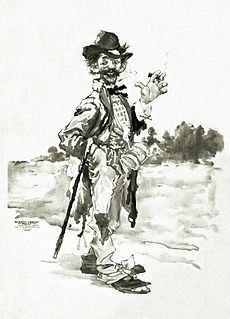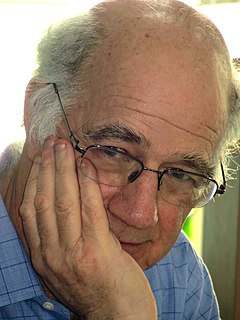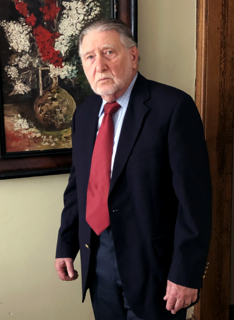Related Research Articles

Fascism is a far-right, authoritarian, ultranationalist political ideology and movement, characterized by a dictatorial leader, centralized autocracy, militarism, forcible suppression of opposition, belief in a natural social hierarchy, subordination of individual interests for the good of the nation and race, and strong regimentation of society and the economy that rose to prominence in early 20th-century Europe. The first fascist movements emerged in Italy during World War I, before spreading to other European countries, such as Germany. Fascism also had adherents outside of Europe. Opposed to anarchism, democracy, pluralism, liberalism, socialism and Marxism, fascism is placed on the far-right wing within the traditional left–right spectrum.

A tramp is a long-term homeless person who travels from place to place as a vagrant, traditionally walking all year round.

Ethnography is a branch of anthropology and the systematic study of individual cultures. Ethnography explores cultural phenomena from the point of view of the subject of the study. Ethnography is also a type of social research that involves examining the behaviour of the participants in a given social situation and understanding the group members' own interpretation of such behaviour.

Erving Goffman was a Canadian-born sociologist, social psychologist, and writer, considered by some "the most influential American sociologist of the twentieth century". In 2007 The Times Higher Education Guide listed him as the sixth most-cited author of books in the humanities and social sciences, behind Michel Foucault, Pierre Bourdieu, and Anthony Giddens, and ahead of Jürgen Habermas.

Visual anthropology is a subfield of social anthropology that is concerned, in part, with the study and production of ethnographic photography, film and, since the mid-1990s, new media. More recently it has been used by historians of science and visual culture. Although sometimes wrongly conflated with ethnographic film, visual anthropology encompasses much more, including the anthropological study of all visual representations such as dance and other kinds of performance, museums and archiving, all visual arts, and the production and reception of mass media. Histories and analyses of representations from many cultures are part of visual anthropology: research topics include sandpaintings, tattoos, sculptures and reliefs, cave paintings, scrimshaw, jewelry, hieroglyphics, paintings and photographs. Also within the province of the subfield are studies of human vision, properties of media, the relationship of visual form and function, and applied, collaborative uses of visual representations.

William Foote Whyte was an American sociologist chiefly known for his ethnographic study in urban sociology, Street Corner Society. A pioneer in participant observation, he lived for four years in an Italian community in Boston while a Junior Fellow at Harvard researching social relations of street gangs in Boston's North End.

Timothy Asch was an American anthropologist, photographer, and ethnographic filmmaker. Along with John Marshall and Robert Gardner, Asch played an important role in the development of visual anthropology. He is particularly known for his film The Ax Fight and his role with the USC Center for Visual Anthropology.
Jay Ruby was an American scholar who was a professor in the Department of Anthropology at Temple University until his retirement in 2003. He received his B.A. in History (1960) and Ph.D. in Anthropology (1969) from the University of California, Los Angeles.
The USC Center for Visual Anthropology (CVA) is a center located at the University of Southern California. It is dedicated to the field of visual anthropology, incorporating visual modes of expression in the academic discipline of anthropology. It does so in conjunction with faculty in the anthropology department through five types of activities: training, research and analysis of visual culture, production of visual projects, archiving and collecting, and the sponsorship of conferences and film festivals. It offers a B.A. and an MVA in Visual Anthropology.
Historians and other scholars disagree on the question of whether a specifically fascist type of economic policy can be said to exist. David Baker argues that there is an identifiable economic system in fascism that is distinct from those advocated by other ideologies, comprising essential characteristics that fascist nations shared. Payne, Paxton, Sternhell et al. argue that while fascist economies share some similarities, there is no distinctive form of fascist economic organization. Gerald Feldman and Timothy Mason argue that fascism is distinguished by an absence of coherent economic ideology and an absence of serious economic thinking. They state that the decisions taken by fascist leaders cannot be explained within a logical economic framework.

The Republican Fascist Party was a political party in Italy led by Benito Mussolini during the German occupation of Central and Northern Italy and was the sole legal and ruling party of the Italian Social Republic. It was founded as the successor to the National Fascist Party while incorporating anti-monarchism, as they considered King Victor Emmanuel III to be a traitor after his signing of the surrender to the Allies.

Michael Burawoy is a sociologist working within Marxist social theory, best known as the leading proponent of public sociology and the author of Manufacturing Consent: Changes in the Labor Process Under Monopoly Capitalism—a study on the sociology of industry that has been translated into a number of languages.

France Winddance Twine is a Black and Native American sociologist, ethnographer, visual artist. and documentary filmmaker. Twine's research has made significant contributions to interdisciplinary research in gender and sexuality studies, racism/anti-racism, feminist studies, science and technology studies, British cultural studies, and qualitative research methods. She has conducted field research in Brazil, the UK, and the United States on race, racism, and anti-racism and has published 11 books and more than 80 articles, review essays, and books on these topics. In 2020 she was awarded the Distinguished Career Award by the Race, Class, and Gender section of the American Sociological Association for her intellectual, innovative and creative contributions to sociology. Twine is the first sociologist to publish an ethnography on everyday racism in rural Brazil after the end of military dictatorship during the "abertura".

John David Brewer HDSSc, MRIA, FRSE, FAcSS, FRSA is an Irish-British sociologist who was the former President of the British Sociological Association (2009–12), and has been the Professor of Post Conflict Studies in the Senator George J. Mitchell Institute for Global Peace, Security and Justice at Queen's University Belfast (2013–present), Honorary Professor Extraordinary, Stellenbosch University (2017–present) and Honorary Professor of Sociology, Warwick University (2021–present). He was formerly Sixth-Century Professor of Sociology at the University of Aberdeen (2004–13). He is a member of the United Nations Roster of Global Experts for his work on peace processes (2010–present). He was awarded an honorary doctorate in 2012 from Brunel University for services to social science.

An ethnographic film is a non-fiction film, often similar to a documentary film, historically shot by Western filmmakers and dealing with non-Western people, and sometimes associated with anthropology. Definitions of the term are not definitive. Some academics claim it is more documentary, less anthropology, while others think it rests somewhere between the fields of anthropology and documentary films.

John Collier Jr. was an American anthropologist and an early leader in the fields of visual anthropology and applied anthropology. His emphasis on analysis and use of still photographs in ethnography led him to significant contributions in other subfields of anthropology, especially the applied anthropology of education. His book, Visual Anthropology: Photography as a Research Method (1967) is one of the earliest textbooks in the field and is still in use today. He is also notable as someone who overcame significant learning and hearing impairments to succeed on a larger stage.
Hubert Knoblauch is a German sociologist. He is known for his work on Sociology of knowledge, Sociology of Religion, Qualitative research and Videography.
Luc Maria Alfons Pauwels is a Belgian visual sociologist and communication scientist, Professor of Communication Studies at the University of Antwerp, Belgium, and director of its Visual and Digital Cultures Research Center (ViDi). He is known for his work on visual research methods.

Jerome Krase (born March 2, 1943, Brooklyn, New York City is Professor Emeritus of Sociology at Murray Koppelman School of Business. Professor at School of Humanities and Social sciences. President of European Academy of Sciences of Ukraine.
References
- ↑ Mary Strong; Laena Wilder (May 1, 2009). Viewpoints: Visual Anthropologists at Work. University of Texas Press. pp. 38–. ISBN 978-0-292-70671-2.
- ↑ "Rev. Joseph A. Lauritis, C.S.Sp. Endowed Chair in Teaching with Technology | Make a Gift | Duquesne University". Archived from the original on April 2, 2015. Retrieved January 22, 2015.
- ↑ Becker, Howard S. (November 1, 2007). Telling About Society. University of Chicago Press. p. 199. ISBN 978-0-226-04126-1.
- ↑ Kornblum, William (January 31, 2011). Sociology in a Changing World. Cengage Learning. p. 30. ISBN 978-1-111-30157-6.
- ↑ Kolb, Bettina (January 31, 2012). "Unveiling Space by Using Participatory Photo Interview". In Silva, Carlos Nunes (ed.). Online Research Methods in Urban and Planning Studies: Design and Outcomes. IGI Global. pp. 120–137. ISBN 978-1-4666-0075-1.
- ↑ "Doug Harper: IVSA President". International Visual Studies Association. Retrieved March 18, 2015.
- ↑ Harper, Douglas (2012). Book Review : Douglas Harper, Visual Sociology. New York: Routledge, 2012, 294 pp. Ejournals.library.ualberta.ca. ISBN 978-0-415-77896-1 . Retrieved November 25, 2016.
- ↑ "Good Company. Douglas Harper (Book)". Connection.ebscohost.com. January 3, 1982. Archived from the original on April 2, 2015. Retrieved November 25, 2016.
- ↑ "Photographic image of cover of Cape Breton 1952 : The Photographic Vision of Timothy Asch". Ethnographicspress.com. Archived from the original (JPG) on November 14, 2016. Retrieved November 13, 2016.
- ↑ "Working Knowledge: Skill and Community in a Small Shop by Douglas Harper" Peter F. Murphy The Oral History Review Vol. 16, No. 2 (Autumn, 1988), pp. 157–159, Oxford University Press